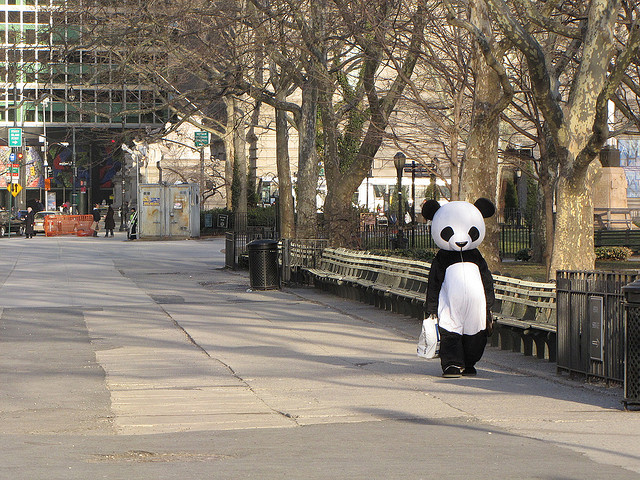 I arranged to meet one of my Twitter friends for the first time in the little bar at the front of my hotel. He is a designer from London and as luck would have it we were visiting New York at the same time, (something we discovered through our simultaneous posts of Times Square on Instagram).
I arranged to meet one of my Twitter friends for the first time in the little bar at the front of my hotel. He is a designer from London and as luck would have it we were visiting New York at the same time, (something we discovered through our simultaneous posts of Times Square on Instagram).
We met, we drank, we chatted.
“I’m surprised you’re staying in a hotel.” he said.
“My partner and I have scored a really cool place on Airbnb. It’s got a giant blackboard in the kitchen and it’s big enough to play frisbee indoors.”
How I chose to travel didn’t fit with the story Tom had constructed about me. The kind of people who meet on Twitter, whose work gives them freedom to travel—people with blogs, who discover that their friends are in New York by checking Instagram, don’t stay in hotels. And very, very soon they will never queue for a black taxi in London or a hail yellow cab from the sidewalk in New York, because riding with Uber will be one of the ways they signal that they belong.
We are the stories we tell ourselves and the choices we make from who we follow on Twitter, to how we experience a city, where we shop and what we buy have become as big a part of our identity as the place where we were born.
Buying is no longer about getting things we need. It’s about reinforcing a set of beliefs we hold and share. Marketing is not about finding new ways to sell more of something. It’s about affinity more than it’s about price—feelings more than facts. Marketing is about giving people frames of reference and context. And above all, marketing is about becoming part of peoples’ story.
Image by llamatofu.
 I arranged to meet one of my Twitter friends for the first time in the little bar at the front of my hotel. He is a designer from London and as luck would have it we were visiting New York at the same time, (something we discovered through our simultaneous posts of Times Square on Instagram).
I arranged to meet one of my Twitter friends for the first time in the little bar at the front of my hotel. He is a designer from London and as luck would have it we were visiting New York at the same time, (something we discovered through our simultaneous posts of Times Square on Instagram).